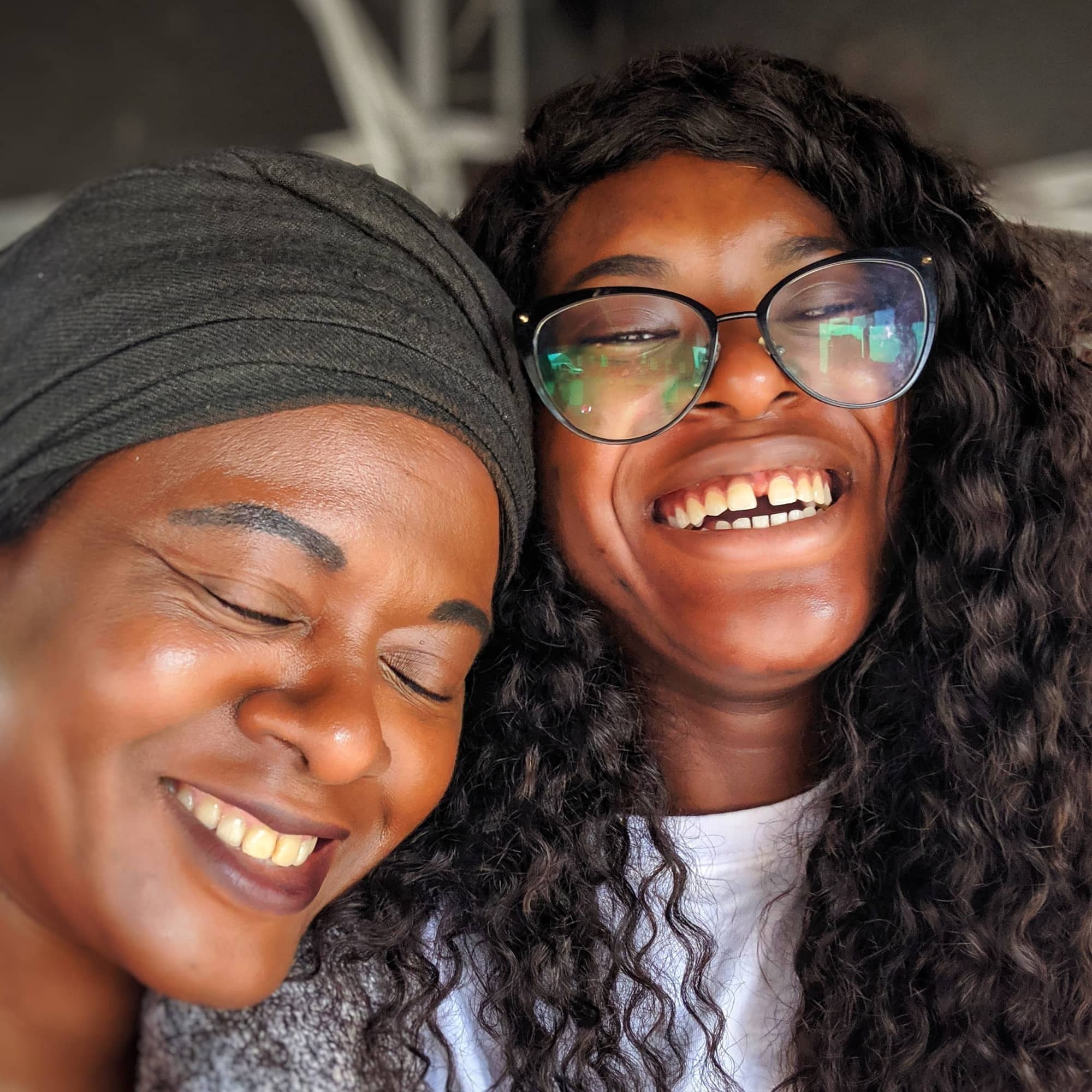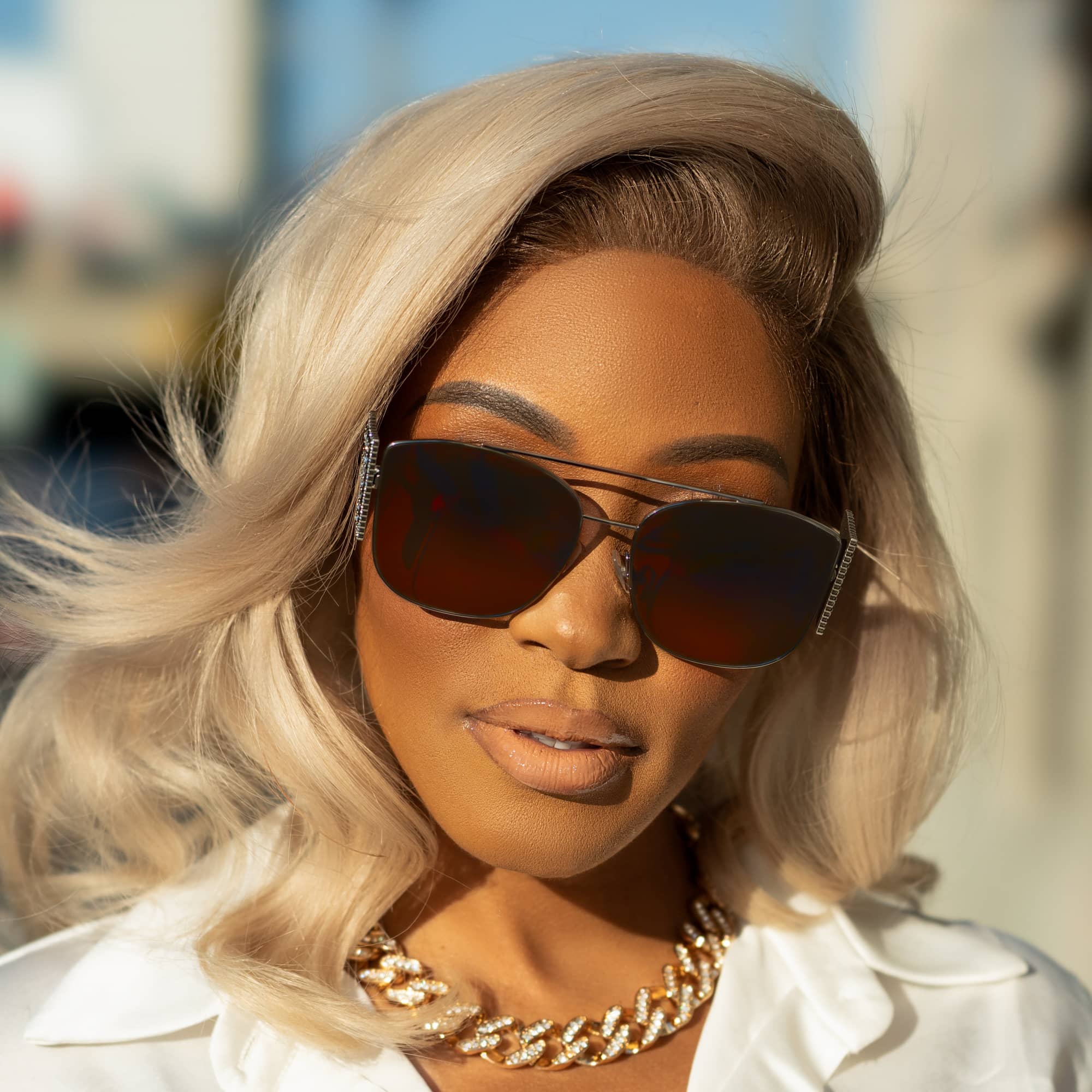
- POPSUGAR Australia
- Beauty
- For the Mother-Daughter Duo Behind Okiki, Making Products Is More Than Just a Business
For the Mother-Daughter Duo Behind Okiki, Making Products Is More Than Just a Business

Too often, the best beauty stories go Untold, solely based on a person’s skin colour, religion, gender expression, disability, or socioeconomic status. Here, we’re passing the mic to some of the most ambitious and talented voices in the industry so they can share, in their own words, the remarkable story of how they came to be – and how they’re using beauty to change the world for the better. Up next: Ade and Antonia Ogunsola, the mother-daughter duo behind the West African-inspired beauty brand Okiki Skin Care, made from their kitchen in Kent, England.
Ade: I was born in England – raised partly in England, partly in Nigeria. My recipes and learnings of soap-making come from Nigeria. When I was younger, my mommy used to make soap back home. She’d make all the concept classics – we call it Kongi Soda soap because the solid bars are actually used for bathing as well as doing your dishes and washing your clothes.
Growing up, my grandma also liked to infuse her oils with dry herbs so they’d have a scent when she used them; that’s how I learned about infusing oils. She had different jars for hair and body and if she was going out in the evening, that’s what she used as perfume.
“We started going to markets together, mainly as a way to bond whilst I was at college, and it quickly became more than just soap,'” Antonia said.
After my mom passed away, I started to miss her dearly and told my other half, “I’m going to start making soap.” That’s how the journey started – first as a hobby.
Antonia: For me, my journey into beauty was a bit different. I grew up with bad skin – I had loads of acne and hyperpigmentation, which is very tough to get rid of. I did the Clinique 3-Step – I think everyone I know who has hyperpigmentation has tried the 3-Step – and I forked out for the Obagi treatment, which was hundreds of dollars. That didn’t really help and I just broke down to my mom one day. It got to a point where I wouldn’t go out without makeup and that wasn’t healthy. She made the Lolu Facial Soap for me.
I used the soap twice a day for 60 seconds and I said to my mom, “You’re onto something here because I can actually see my face changing.” A couple of my friends had purchased it too and they said it was really good. I said to my mom: “You should definitely start selling this product.”
We started going to markets together, mainly as a way to bond whilst I was at college, and it quickly became more than just soap – it became body lotion, balms, bath salts, and lip balm. She is always keeping busy – she can’t sit still.
Ade: I’m always creating new things. Before I started making soap, I was making wine. I soon realized the food I used to buy to make the wine could also be used to make soap. In the second batch of soap I made, I used fresh fruits like blueberries, carrots, and papaya.
Antonia: At the time I was working at Victoria’s Secret, so I was quite good at selling. Being able to interact with people and sell whilst my mom worked on the formulation side worked well. Initially, we only sold at markets; we both worked full-time alongside doing Okiki. That was, until I was let go due to COVID-19, about two weeks into the first lockdown.
At first, it really threw me. I’m like my mom in that I do not like being idle. She suggested I build a website for Okiki so I did on Wix. That took about a month and then we launched online. We only sold two products all of May and they were both to my friends. I thought, No, I’m not happy with this; I know my mom’s products are good. What can we do?
I’d followed Iman Leila, founder of Lima Communications, for a while and finally asked her, “Do small businesses get PR?” and she told me to reach out to her. Initially, my mom was unsure, but I told her to trust me that this would help. Iman was so useful in helping people to reach our brand.
After working on Okiki full-time during COVID-19, I found my dream job and got an offer and my mom encouraged me to take it. For us, there’s this misconception that because we’ve had all this press, everything is flying off the shelf and we’re making hundreds of thousands of dollars. That’s not the case: we’re very much still a small business. From a financial perspective, in order to fuel the business, we need to be bringing in some sort of money as well – getting a business off the ground doesn’t happen overnight.
Ade: I’m an early bird; I wake up around three or four in the morning and I make products or pack any orders that need to be done before I even get ready for my day job. When I finish my work, I go to the post office and drop the packages off for delivery.
Antonia: My time is spent organizing our social media, working with Iman on our brand refresh, Facebook ads, and email marketing. Those sorts of things take a bit longer for me because I’m dyslexic.
“I’m an early bird; I wake up around three or four in the morning and I make products or pack any orders that need to be done before I even get ready for my day job,” said Ade.
It’s a lot to balance and it was hectic last year, even with working on the brand full-time. After just two sales in May, in June, we had 200 orders. We basically sold out of mom’s stock for the year overnight and our soaps take a minimum of four to six weeks to create (the Aleppo soap takes nine months). This was peak pandemic, so getting the ingredients was a struggle, too.
Speaking frankly, we feel the initial growth came off the back of the Black Lives Matter movement and that wave has slightly died down. So, when people are buying from us, I know they’re buying because they really like our products. We have a lot of repeat purchasers; one guy just bought his 70th order from us.
Ade: Even though I spent most of my adult life in the UK, you always go back to your roots and I wanted a place that I could give a little bit of my profit back to from Okiki. Something for people back home. I came across One Tree, an organization that works to plant trees in Ghana. They don’t plant in Nigeria, but my other half is from Ghana so we have roots there. With every sale we make, we donate to them monthly to help plant trees.
Antonia: We’ve spent a lot of time deciding on the best packaging for the rebrand. It’s hard because, as a small business, you can be as environmentally-conscious as you want to be but it’s difficult and expensive. In addition to the tree planting donation, we have a lot of leftover soaps that we don’t sell because they’re not quite right and instead of throwing them away, we donate them to local food banks.
When it comes to the future of Okiki, we both agree that we want our products to be sold in a store in small batches.
Ade: My vision is something similar to Lush, but different. I have around 200 licenses for products currently, but we’re waiting for the right time to make them because it’s only the two of us and every single product is made by me.
I love it when people using my products comment on them because I’ve come a long way in formulating, especially bearing in mind I’m not a science student. It’s so nice to see people use the products and coming back to buy more.


